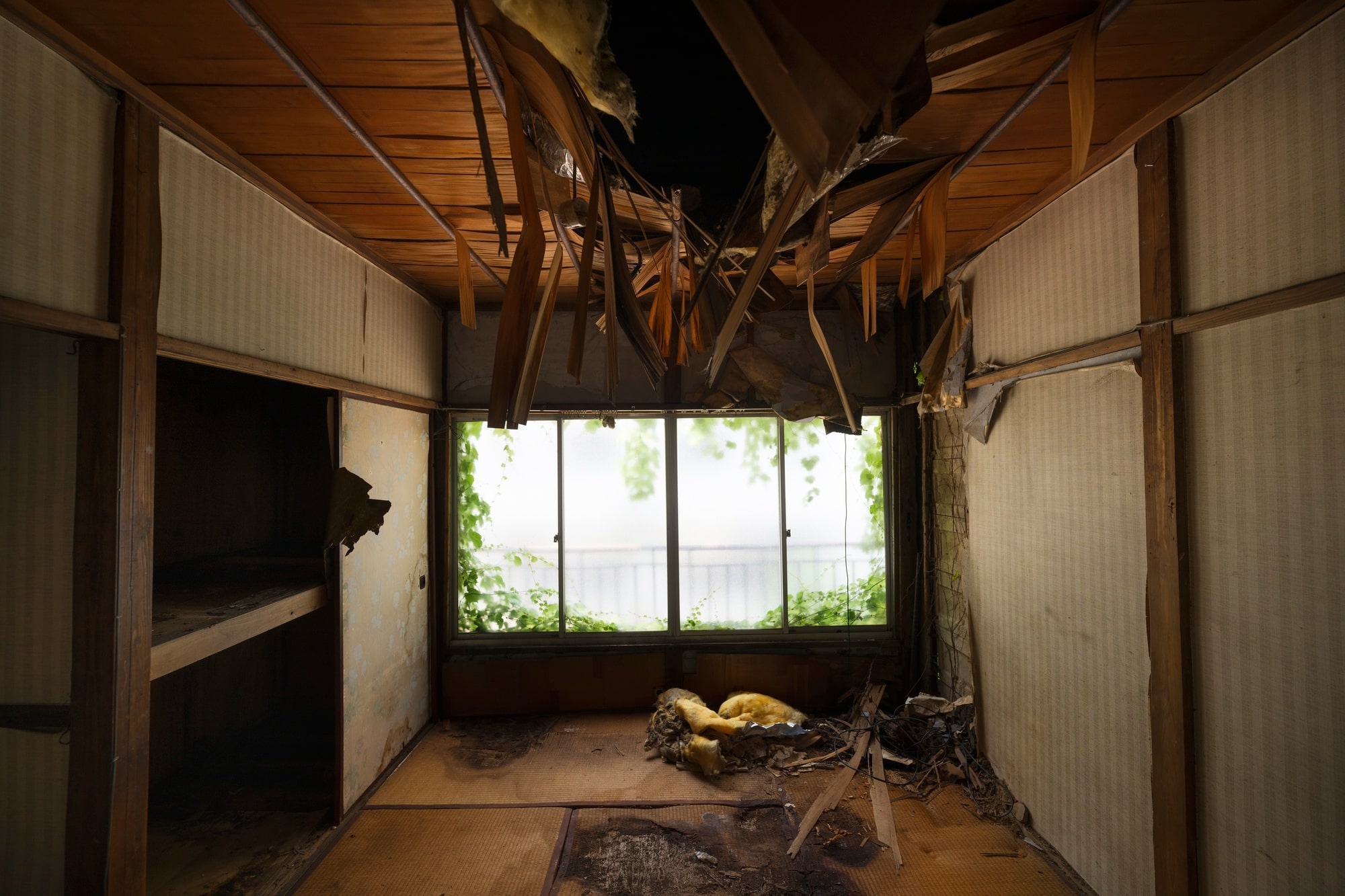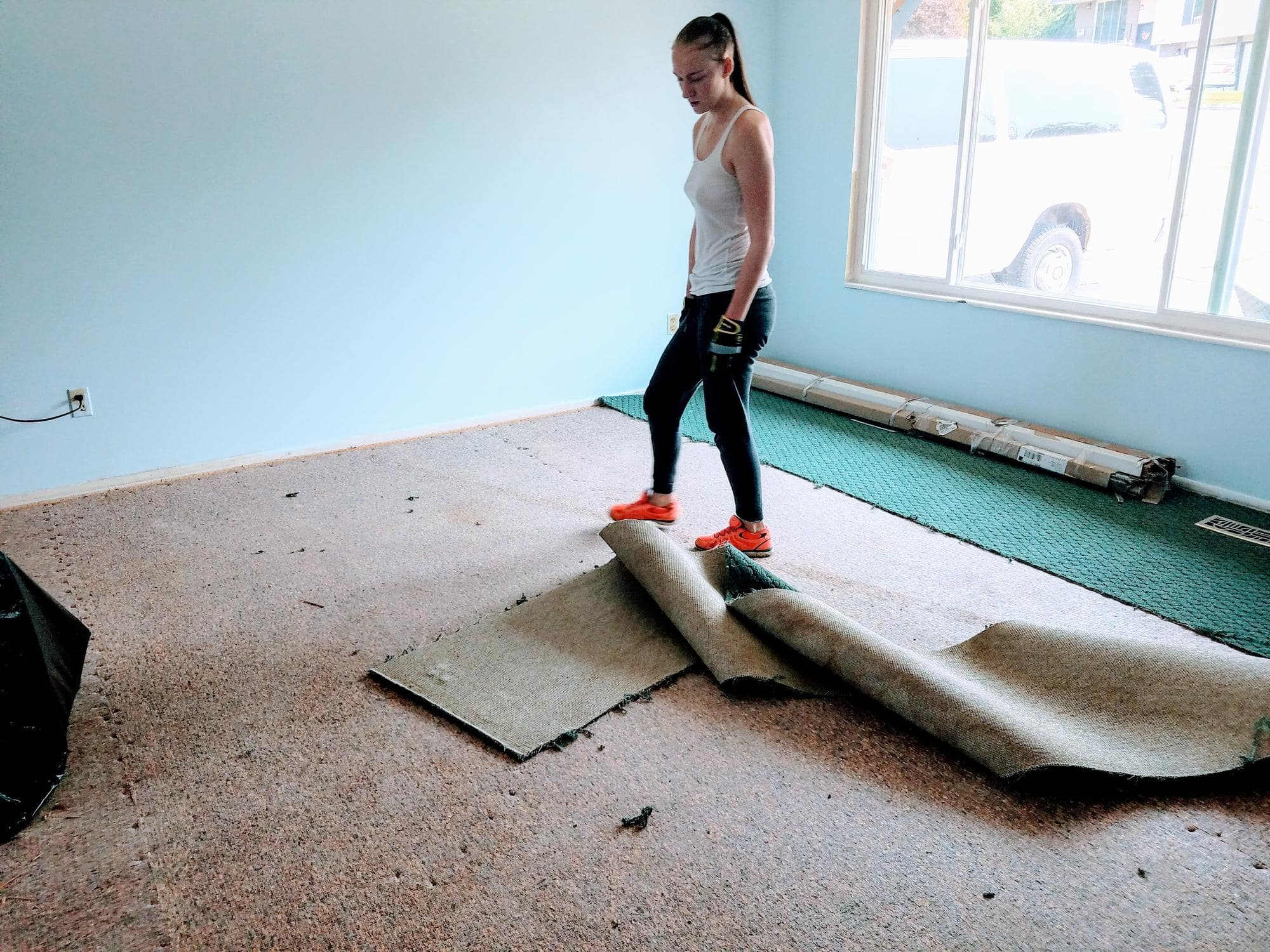Sell House with Flood Damage Restoration

Water damage is one of the unpleasant surprises one will get when selling a house. Water can cause disastrous and very expensive damages to a house, making the whole process of putting your property up for sale that much more difficult. Real estate agents can often help you sell a house with minor water damage, provided it is disclosed to potential buyers.
Selling a house that has been damaged by water
However, if the damage is extensive, then many buyers may simply walk away, and it may take a lot of time to find an interested buyer. Depending on the extent and location of the water damage to the house, this could also affect home value.
Since water damage often can be costly and sometimes impossible to repair without hurting the resale value of your house, sellers should carefully examine their options before any necessary repairs are dealt with professionally. What is water damage?
Water damage occurs when water finds its way to places that it shouldn’t be. It can cause:
- Structural damage
- Mold and mildew
- Warping of wood
- Electrical problems
- Common causes include:
- Burst pipes
Faulty or broken appliances Leaks in the roof or foundation Natural disasters like flooding and hurricanes Poor sealing around a window or door
If left unchecked, water damage can create permanent structural issues in a home that can be real selling challenges. The good news is that water damage is often covered under home insurance policies, so don’t hesitate to call your insurance company if you’ve had any major issues regarding water. Hopefully, this helps you feel a little better while you go through the process of getting your property ready to market to buyers.
How does one detect water damage inside a home?
Water damage sometimes can be hard to detect in a house; while the most easily noticeable signs are standing water or mold, there is much more important signs that you should know. You should check for possible water damage as a pre-remedy before listing so that potential buyers will not have any surprise during an inspection.
Here is what you might want to look for:
- Peeling paint and wallpaper
- Discolored carpet and flooring
- Loose tiles or stained grout in bathrooms and kitchens
- Cracked foundations or walls
- Water stains brown or yellowish in color
- Rusting metal pipes
- Musty odors
Before you try to sell a house that’s been damaged by water, there are some things you need to do before listing your home. You want the area free of standing water, and any leakage source repaired. You will also need to have professional mold remediation done as well, for safety reasons against potential health hazards in the future for the buyer.
Does Home Insurance Cover Water Damages?
While the answer varies depending on your policy type and provider, most policies protect against water damage in the event of things like broken pipes and flooding disasters. However, there are a few things to consider:
Type of water damage:
Homeowners insurance typically covers sudden or accidental damage from burst pipes and overflowing appliances but typically does not cover natural disasters like floods, hurricanes, or earthquakes. You purchase flood insurance separately.
Exclusions and limitations
There are almost always exclusions and limitations to water damage when it comes to homeowners insurance. For example, if mold damage results from a plumbing leak, your policy might not cover it.
Deductible:The higher your deductible, the lesser the coverage. Anything that needs repair or replacement due to water damage-if the deductible is too high-you may have to pay out of your pocket yourself until such time as when the insurance kicks in.
If you are unsure, contact your home insurance provider for further information.
How to Repair Water Damages in a House
The golden rule towards repairs concerning water damages and how to prevent further damage from affecting your house is to be proactive.
1. Find the leaks.
The first step involved in locating leaks or internal sources of moisture. This is done by the homeowner, who checks the ceilings and walls for water damage like discoloration, peeling, and mold.
2. Fix the leaks.
Now that you’ve located any existing problems, you can start repairing them to help prevent further damages from setting in. If at all possible, repair the source of the leak by replacing damaged pipes or repairing faulty plumbing fixtures. Sealing up drafts around windows and doors will also help to prevent moisture from entering the home.
3. Clean up once you find the leak.
Timing is a big factor in cleaning up water-damaged areas. Wet surfaces need to be wiped down as soon as possible because, within 24 hours, standing water can develop mold. Dry out completely all areas wet from water and inspect those areas for mold or mildew afterward to avoid future problems.
How does one repair a house that has water damage?
Repairing a home for water damage before selling is always important. There are a few ways you can use in repairing the damages and making the house attractive for prospective buyers.
Replace damaged materials.
Replace any flooring, drywall, insulation, etc. if it has damage. If this is too complex or an overwhelming job, do consider hiring an expert who can handle the task.
Clean and disinfect.
Anything that has been touching the water should be cleaned and disinfected to remove the bacteria or mold growth. This includes carpets, furniture, and any other wooden surface.
Repair structural damage.
Get all your structural damage professionally repaired, including those cracked foundations and wall studs. You are going to have to ensure the integrity of your home before you sell it.
Dry out moisture.
Make sure that every spot in the house that has been exposed to the water is completely dry before selling. Fans and dehumidifiers should be used as needed. You may want to call in a company specializing in water mitigation.
Can You Sell a House with Water Damage?
Timing is of essence in selling a house with water damage. You will want to sell the house before the damage has become too extensive and expensive to fix, or after you have repaired any damage. To do this, you need to know the various available strategies.
First, understand the type of water damage you’re looking at and what steps can be made to remedy it. You’ll also want to know how much the changes will cost you in dollars and cents.
Once you know what needs repair, you’ll know exactly the best way to sell your house. Some common strategies that work include:
Sell your home “as is.”
If you don’t have the time or funds to do repairs, then your best bet may be to market your property in its current condition. You will be listing your house “as is,” but you should make any buyers aware of what they are getting themselves into upfront.
Do minimal fixes.
Minor repairs go a long way in improving general appeal and making your house more attractive to buyers who might otherwise be scared away by signs of water damage: paint walls, repair drywall, or replace carpeting or any other material that has been damaged from exposure to moisture.
Price your home competitively.
Price your home competitively, and prospective buyers may be attracted to the chance of buying a property that needs some work but at a reduced price compared to the market value pre-water damage. Of course, you will have to do proper research when setting your asking price.
Make buyer concessions.
This may be due to the expensive repair cost or due to the time required for repairs; you could give incentives for buyers by paying buyer closing costs or giving some money to fix certain items in the future.
Check our Guide to Sell Your House as is in the fastest way
Selling your house “as is” to a cash home buyer with 99Offers we got you
Fortunately, you don’t have to go through this process all by yourself and take the risk of losing a ton of money on repairs and renovations. The good news is that you can sell your water-damaged house “as is” without having to go through it all on your own and take the risk of losing a ton of money on repairs and renovations. When you sell to a cash home buyer like Cash Offer Option, you don’t have to worry about making any repairs or offering any buyer concessions. Having been in the business for over 25 years, we have assisted many home sellers in getting cash for their houses. A house with water damage can be sold to us since we buy homes in almost any condition.
1. Take a picture of the damages
First off, document the damage by taking both photos and videos of your flooded house. This evidence is crucial for insurance claims. Preserve any damaged fixtures or appliances as proof. When contacting your insurance company, discuss the cause of the damage, police coverage, and prompt reporting for faster resolution.
2. Assessing Safety and Stability
When faced with flood damage, the priority is ensuring the safety and stability of your property. Before initiating any restoration work, ask yourself these crucial questions:
- Have all electrical appliances undergone professional inspection and been deemed safe for use?
- Has the structural integrity of the building or foundation been jeopardized?
- Have electrical and plumbing fixtures suffered damage?
- Is it safe to reestablish electricity, gas, and water supplies?
- Are sewage lines unblocked to avoid contamination?
3. Initiating Drying Out Process
Mold can begin to grow within 24 to 48 hours in damp environments, posing health risks. Once safety is assured, it’s vital to commence thorough drying out of the property as quickly as possible.
-
- Remove excess water using pumps or absorbent materials.
- Utilize fans, blowers, and dehumidifiers to expedite the drying process.
- Enhance ventilation by opening doors and windows to facilitate air circulation.
- Consider using heaters in conjunction with dehumidifiers to accelerate drying.
- Prevent mold growth by monitoring moisture levels regularly.
4. Fire Damage Cleaning Up and Sanitizing
Cleaning up after a flood can be overwhelming, but it’s essential to prioritize certain areas to ensure a thorough restoration:
- Make sure all exposed surfaces are disinfected to remove contaminants and inhibit mould growth.
- Make sure your tiled floors, walls, and countertops are thoroughly cleaned with appropriate cleaning solutions.
- Assess the extent of water damage to determine whether carpets can be salvaged or need to be replaced.
- You can deodorize and clean carpets effectively by using wet-dry vacuums and steam cleaners.
- It is necessary to remove and replace damaged drywall, to prevent mould infestations and maintain structural integrity.

How to use ChatGPT to create irresistible property presentations that will help you close more deals
by Ivan RiverComplete All Repairs and Restoration
After ensuring your building is clean and dry, it’s time to address any necessary repairs. Home inspectors can offer valuable insights into what fixes are needed and can coordinate with contractors for the work. Consider enlisting the services of a flood restoration company for a seamless experience. They can oversee evaluations, repairs, and restoration, drawing on their expertise in flood damage cleanup.
Additionally, if you are facing significant damage and find the restoration process daunting, remember that we can also offer a unique solution. We have a network of buyers ready to purchase houses even after they’ve been flooded.
While insurance coverage may alleviate some financial burden, dealing with a waterlogged property is undeniably distressing and time-consuming. If the damage is manageable and the cleanup efforts bearable, staying put may be feasible. However, if the extent of the damage is significant, requiring weeks of extensive repairs, selling up may be worth considering, and we have the people ready to buy your flood-damaged house.
Selling your property might be a more efficient and stress-free option.
Sometimes, offering a bit more for the home in exchange for help with closing expenses can work out well. For instance, if a home is listed at $180,000, you might offer $187,000 with the extra $7,000 going towards closing. While this might raise your monthly payment slightly, it means you’ll need less cash upfront. Maryland also offers some assistance programs for closing costs if you qualify for certain loans.
Match for you
Sep 30, 2024
Natural disasters, especially hurricanes, cause widespread destruction and upheaval that affect not only the physical landscape but the emotional and financial well-being of those affected. In the aftermath of a storm like Hurricane Helene, which recently devastated parts of Florida, many homeowners are left facing tough decisions about their future. As they sift through debris, […]
Sep 27, 2024
Selling your home without a Realtor in Texas is possible, but it’s a lot of work. While choosing the For Sale By Owner (FSBO) route can save you from paying a seller’s agent commission, you’ll still need to cover the buyer’s agent fee. You’ll be managing everything on your own from setting the price and […]
Sep 24, 2024
When you’re searching for a new home, you might come across properties in communities governed by a homeowners association (HOA). While some homeowners see HOAs as a way to maintain property values, others view them as restrictive something to consider if you’re planning to “sell my house fast for cash” or hoping to get a […]
Match for you
How to use ChatGPT to create irresistible property presentations that will help you close more deals




